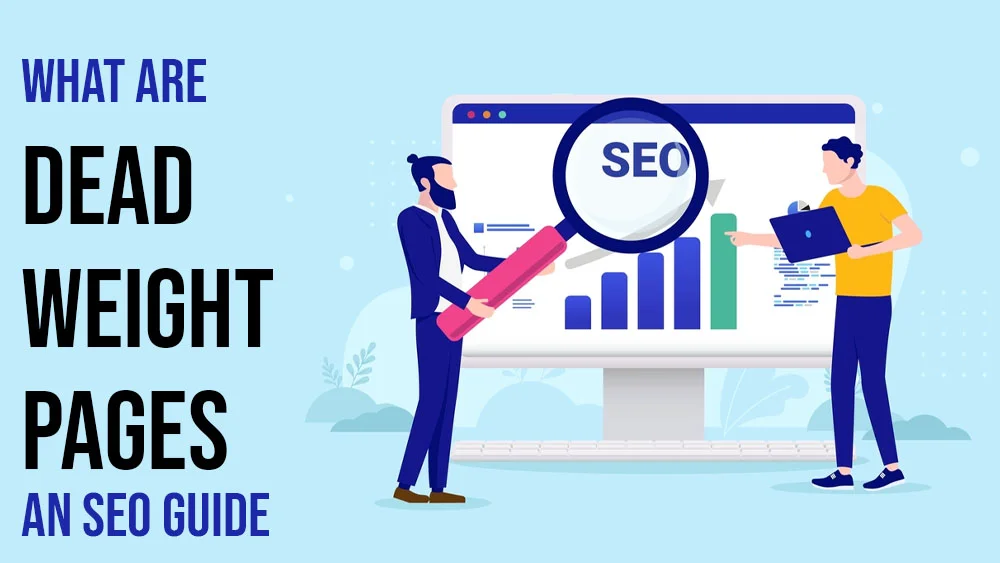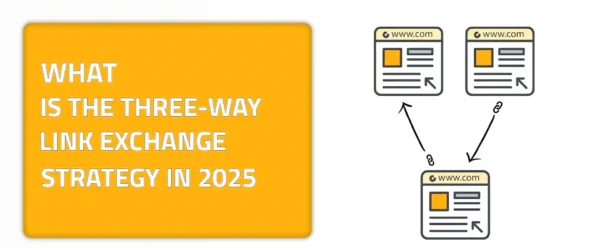You know when you’re sometimes carrying a lot on your shoulders and feel like you’re carrying unnecessary baggage? This is kind of the metaphor that I would like to use to describe dead weight pages. Sometimes websites have slow performances because of something that is called dead weight pages. Those are what I like to call the silent SEO killers. That is, because they drag your website’s performance six feet under. But what are those pages exactly? And what should you do to fix them if you have them as a problem? Let me tell you in this dead weight pages dedicated guide.
Simply put, dead weight pages are pages that are underperforming. These pages add little to no value to your website. We’ve all had old blog posts that are closing in on extinction and that we are 100% sure that no one is going to read or give it any attention. That is what is considered a dead weight page. As harmless as they may sound, they are far more harmful than you can ever imagine. They are not just sitting there minding their own old self business; they hurt your SEO by wasting a certain crawl budget and diluting your site’s authority.
This may even lead to something as catastrophic as driving some of your page’s visitors away. Something that neither of us would want. In order to know all there is that you need to learn about dead weight pages, delve deeper into this guide and understand how you can stop them from jeopardizing your page’s performance.
Dead Weight Pages: Definition in Details
Dead weight pages. Three words that have a detailed definition that you should be aware of. So, what are they, and why should you care? In the world of SEO, dead weight pages refer to those underperforming, low-value pages on your website. those pages are known to not drive traffic, engage users, or contribute to your overall search ranking. They are, in other, simpler words, useless. They might once have served a purpose, but over time, they’ve become outdated or irrelevant.
What does a dead weight page look like? Imagine old blog posts that haven’t been updated in years, product pages for items you no longer sell, or even thin content pages with barely enough information to hold a reader’s attention. As I mentioned above, they may seem harmless, but as a matter of fact, they do more harm than good. That is, as they clutter your website, waste your crawl budget, and weaken your site’s overall authority.
I know that these pages sound like stalkers lurking in your website’s structure. And to be completely honest, they kind of are in some way. Identifying and addressing dead weight pages can make a big difference in your site’s SEO health. If you notice that your site needs a certain improvement this is one element that may be dragging its performance. Identifying your site’s dead weight pages will aid you in streamlining your content and improve search engine rankings.
How Harmful Are Dead Weight Pages for Your SEO?
I know that everything harmful has a certain extent of being harmful, but what is the extent of dead weight pages? And how are they causing you trouble? One major problem that they cause is the negative impact they have on your crawling process. Search engines like Google and Bing only dedicate a very little amount of time to crawl your site. If that amount of time is spent or invested in indexing outdated or irrelevant pages, your high-quality content of great value might be overlooked. This will make you miss a certain chance of ranking because of those dead weight pages.
Another way that it could harm your website is by decreasing your domain’s authority. Search engines follow a procedure of evaluating your ENTIRE website when it comes to giving you a certain authority score. If they detect that you have a good amount of pages that represent irrelevant content or outdated ones, you could actually lose a good opportunity for scoring a high domain authority score. That is why you crawl your pages and filter them out in order to determine which has outdated and low-quality content and which has better chances of ranking and gaining you a high authority score.
Last but not least, dead weight pages can lead to an increased bounce rate and lower user engagement. These two silent SEO killers are so very common when it comes to dragging one’s website performance down. Visitors quickly realize these pages aren’t useful and leave, signaling to search engines that your site isn’t providing value. Dead weight pages are harmful and bad for your site’s health, more like junk food for our bodies’ health. Avoiding their harmful existence is something that can help you increase your chances of ranking higher and getting noticed for a better authority score by search engines.
The Process of Identifying Dead Weight Pages on Your Website
Identifying dead weight pages on your website can feel like searching for a needle in a haystack, but with the right tools and approach, it’s surprisingly manageable. That is why I love today’s technological age. As it allows us to have so many advanced tools that facilitate our lives.
So, where do you start? What tools can help? There are several SEO tools available that can make the task easier. Google Analytics and Google Search Console are a great starting point. These platforms give you an in-depth look at how each page performs. Wondering what to look for?
Here are some key metrics to keep an eye on:
- Low traffic: Pages that rarely get visitors are likely adding little value.
- High bounce rates: If users leave quickly, the content may not be engaging or relevant.
- Low average session duration: If visitors aren’t sticking around, it’s a sign that the page isn’t compelling enough.
- Lack of backlinks: Pages with few or no backlinks are less likely to boost your site’s authority.
The process of regularly checking these metrics will help you identify the pages easily and figure out which ones are dragging down your SEO performance, and from there, take action to improve or remove them. It’s easy with the right tools and less time-consuming.
How to Fix Dead Weight Pages? The Full Process
You know how I like to strategize things on this blog, I love strategies and schemes because they give you an organized plan to walk yourself through in order to reach something specific. That is why it is not a complicated task to actually fix your dead weight pages; however, it is a process that needs strategic planning and a good amount of time to search for the right tools. So, how do you deal with pages that no longer serve a purpose? First, ask yourself: Can this content be improved? If a page has potential, updating it with fresh, relevant information might be the easiest fix.
But what if a page is outdated or irrelevant? Repurposing it could be the answer. You can go for transforming that underperforming blog post into a useful infographic or video, giving it new life. Sometimes, though, the best option is to remove the page entirely. But don’t just take the easy way out and hit the delete button. Redirecting the URL to a more relevant, high-performing page is essential for preserving your SEO. What about similar pages with overlapping content? Merging them into a single, comprehensive resource can streamline your site. Additionally, it can boost its value to users and search engines alike. And this is how you fix your way around dead weight pages and save yourself the trouble of having to deal with a weight so large it can drag your efforts down!
How to Prevent Dead Weight Pages From Ruining Your SEO?
Preventing dead weight pages from accumulating on your website is all about proactive management. But how do you keep your site lean and of high quality? First, make regular content audits part of your routine. Just like your daily morning coffee. That is because if you wish to have a healthy site with a healthy SEO, your site requires periodic check-ups to ensure all pages are performing well.
Having a solid content strategy also helps. Before publishing new content, ask yourself: Does this add real value? Will it still be useful in six months? Imagine running an e-commerce site—creating a page for a limited-time sale is great, but leaving it untouched after the sale ends can turn it into dead weight. Reviewing your site consistently and being strategic about the content you create will allow you to maintain a cleaner, more effective website that is made for better SEO and a smoother user experience.
Wrapping It Up!
Now that you’re aware of the seriousness of dead weight pages and how they can affect your SEO, it’s time to get more invested and understand all there is to understand about SEO and it’s optimization importance for your website. If you’re interested in knowing more about SEO and its methods, check out linkexchange.ai for more SEO optimization strategies and marketing tips and tricks. Our platform will provide you with the necessary information regarding SEO optimization and how you can drive your website to the maximum levels of success.











